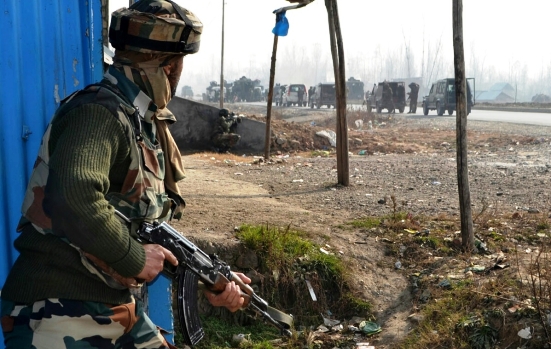LI Network
Published on: 26 September 2023 at 12:42 IST
The Jammu and Kashmir and Ladakh High Court has recently emphasized that law enforcement authorities must strictly adhere to established guidelines outlined in Police Rules when opening or retaining history sheets.
In a significant ruling, the court declared that a history sheet can only be initiated when the authority is reasonably convinced that the person in question is a habitual offender.
Justice M A Chowdhary stressed that authorities must exercise this discretion with reason and justice, basing their decisions on established legal procedures rather than personal opinions or whims.
The court emphasized that their actions should avoid arbitrary, vague, or fanciful judgments.
“The criteria for opening a history sheet is the subjective satisfaction of the authority and it has to be arrived at, on the reasonable belief or knowledge that the person, for whom the history is opened or retained is habitually addicted or aid or abet, the commission of crime, whether convicted or not, etc…The discretion of the authorities has to be exercised, according to the rules of reason and justice and not according to private opinion, according to law and not humor. It is to be not arbitrarily vague, fanciful, but legal and regular and it must be exercised within the limit to which an honest man competent to discharge his office or to confine himself.”
The case originated when a petitioner sought the quashing of a ‘Verification of Character and Antecedents Certificate’ that labeled him as a history-sheeter and under surveillance as of November 19, 2022.
The petitioner, a prominent politician who had contested State Legislative Assembly Elections in 2014, argued that this categorization was unwarranted and detrimental to his reputation.
The petitioner contended that several cases had been registered against him, primarily out of political vendetta, but most had resulted in acquittals. Therefore, the certificate branding him as a history-sheeter was unjust and needed to be invalidated.
However, the respondents argued that the petitioner had been involved in numerous criminal cases, including serious offenses like theft and rape, making him a threat to public order. They maintained that his history sheet had been initiated to monitor his activities and prevent further criminal acts.
Justice Chowdhary highlighted that Rule 702 of the Police Rules, 1960, stipulates that the opening of a history sheet should be a meticulous and reasoned process, typically made by experienced officers. Justice emphasized that the decision should not be mechanical but deliberate, grounded in reasonable grounds.
The court emphasized that law enforcement agencies must exercise this power with caution and responsibility, taking into account constitutional rights, particularly the right to privacy guaranteed under Article 21 of the Indian Constitution.
“Needless to say that every person wants to live with dignity and he/she cannot be condemned arbitrarily. It is also to be borne in mind that estrangement of the members of the history sheeted person in social gathering etc., is not uncommon in order in our society. Therefore, opening or retention of history sheets, which interferes with the right of privacy of a person, should be done strictly, adhering to parameters inbuilt in the police rules, keeping in mind the object sought to be achieved.”
In light of the fact that the petitioner had been acquitted in four out of five cases, and the fifth was not proven, the court concluded that he could not be classified as a habitual offender. It found that the initiation of the history sheet had not followed proper procedures and violated the petitioner’s fundamental rights under Article 21.
“It also appears that the history sheet of the petitioner has been opened not in accordance with the relevant police rules and the opening of the history sheet against the petitioner offends his fundamental right enshrined in Article 21 of the constitution of India,” the bench maintained.
As a result, the court granted the petition and ordered the removal of the history sheet opened against the petitioner.
Case Title: Bashir-Ud-Din Vs UT Of J&K

